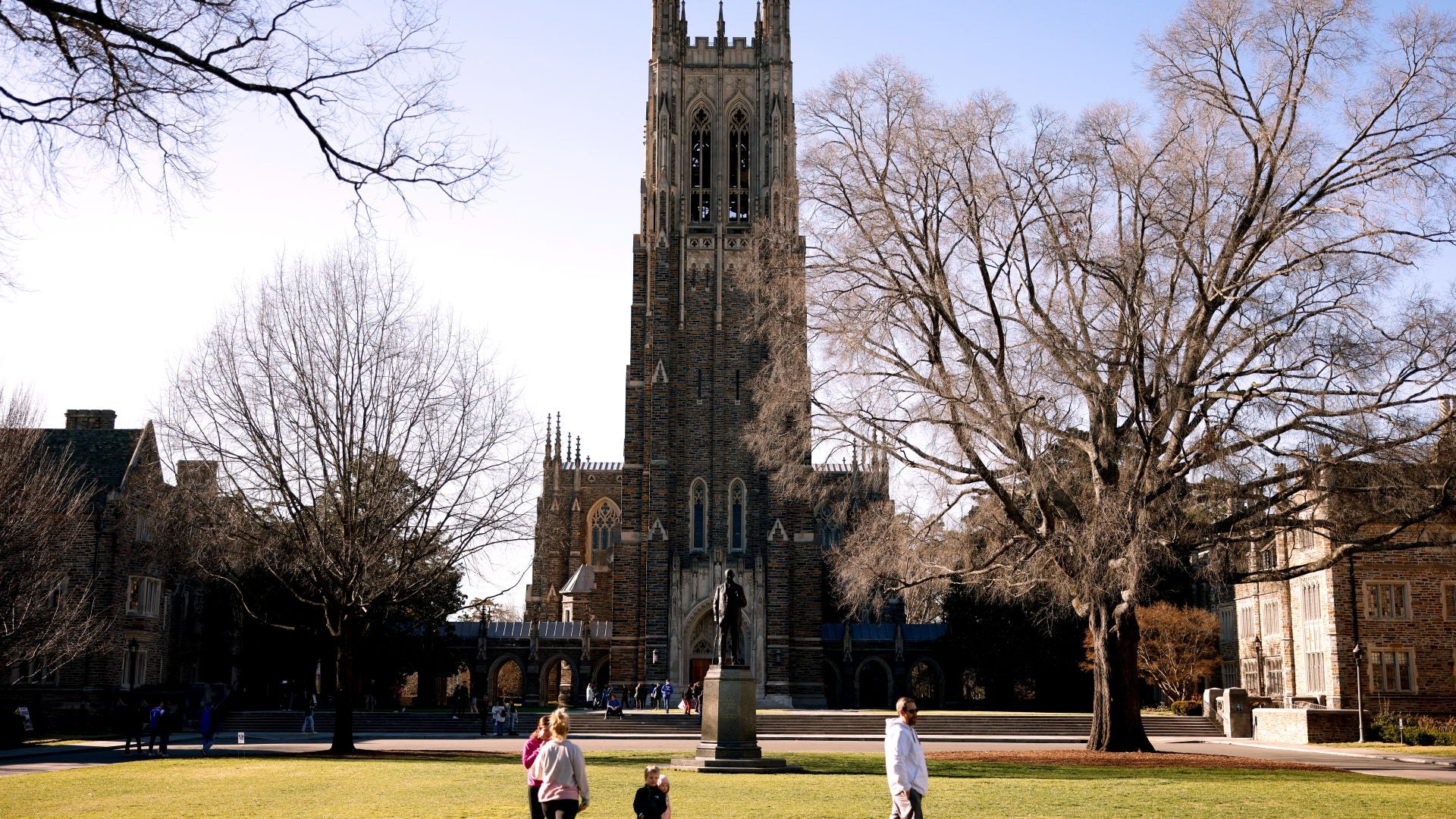
Following the end of affirmative action, Duke University will discontinue its Reginaldo Howard Memorial Scholarship Program, a program for top Black applicants.
The Reggie Howard Scholarship program was founded in 1979 to honor the memory of Duke University’s first Black student government president, reports The Duke Chronicle. To qualify, applicants had to demonstrate financial need. The scholarship was awarded to 15 to 20 Black undergraduate students who received full tuition, room and board. In addition, these students were also provided with funding for independent research opportunities, as well as domestic and international learning experiences.
“It is very much disheartening to hear that this program that opened the door for me to come to Duke is now being closed essentially, even though it will take on a new form,” Mya Harris, a junior at the university, told The Chronicle.
The North Carolina university is establishing a new program in its place, and all undergraduate students will be eligible to apply. The new program is a result of the combined efforts of the Office of University Scholars and Fellows in partnership with the Mary Lou Williams Center for Black Culture and will “not include a competitive selection process.”
Duke’s vice provost for undergraduate education Candis Watts Smith wrote an email to Reggie Scholars and alumni of the program. “The Reginaldo Howard Leadership Program will honor Reggie Howard’s legacy by supporting Black academic excellence, intellectual community and leadership on campus through an intentionally designed series of engagement opportunities,” the email read.
The email also clarified that this happened “in light of changes to the legal landscape related to race-based considerations in higher education.”







While many are frustrated by this decision, it wasn’t entirely unexpected, considering the current political climate. Last September, there was a “Title IX complaint filed…against Duke’s Alice M. Baldwin Scholars program, which alleged that the all-female program engages in ‘reverse discrimination.’”
Duke isn’t the first university to end scholarships for minorities. Immediately after the Supreme Court ruled to effectively end affirmative action in 2023, Andrew Bailey, the Republican attorney general of Missouri, said “institutions in Missouri must implement the Supreme Court’s decisions immediately…All Missouri programs that make admitting decisions by disfavoring individuals based on race—not just college admissions, but also scholarships, employment, law reviews, etc.—must immediately adopt race-blind standards.”
In addition to Missouri, “public institutions in Texas, Illinois…and Alabama, as well as the private Boston University, also appear to have responded to the court’s ruling by eliminating at least some scholarships meant to benefit racial minorities.”





